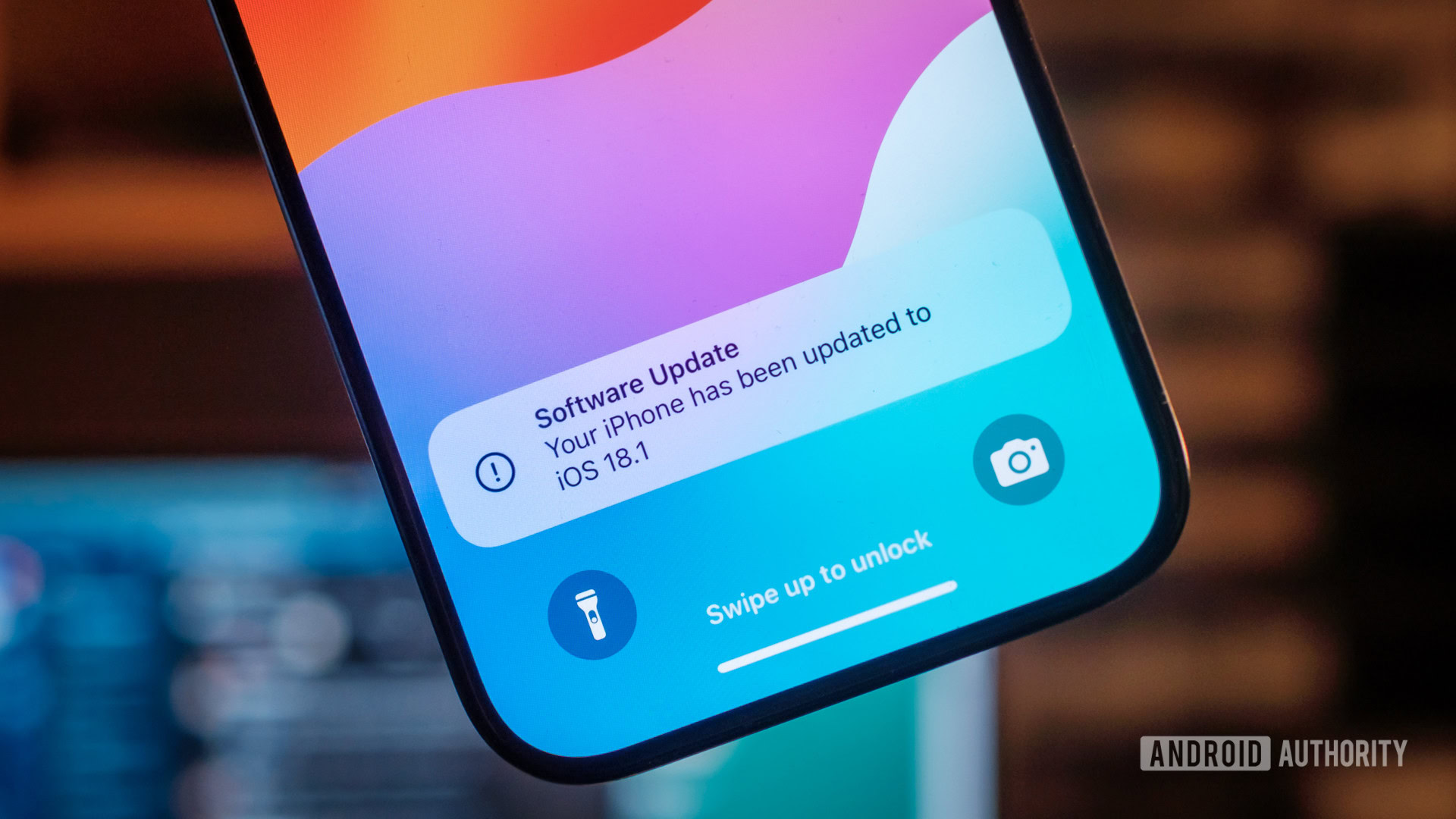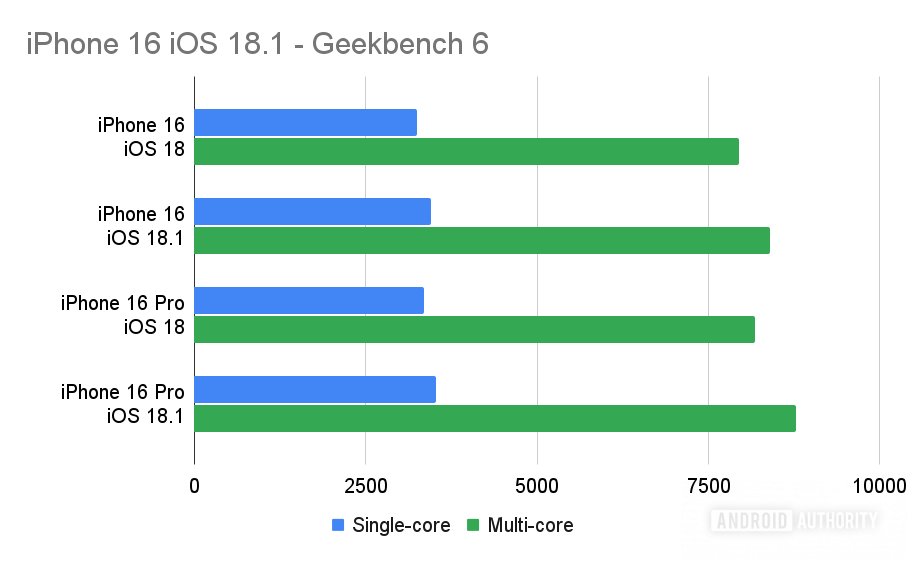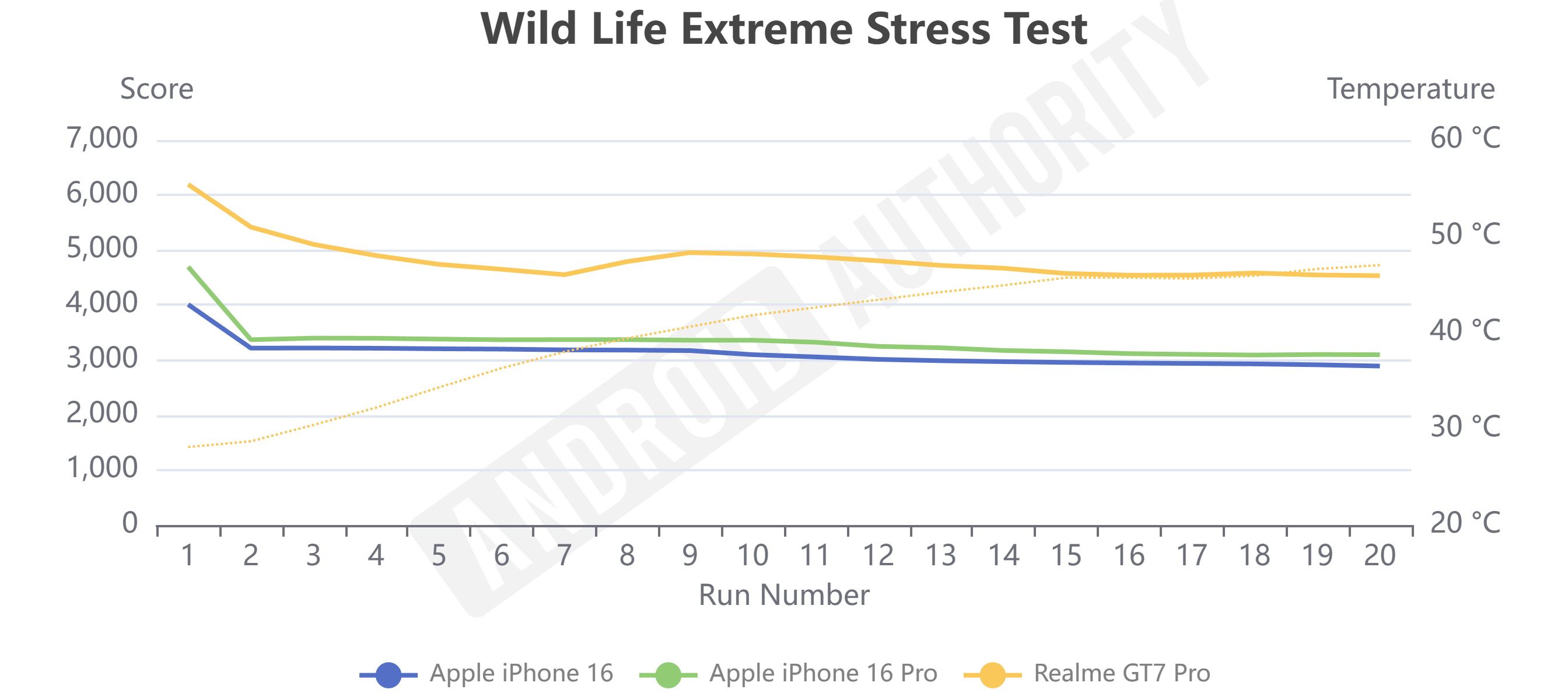
Robert Triggs / Android Authority
iOS 18.1 is here, and all the talk is about Apple Intelligence. However, it also appears that the latest iPhones received a modest performance boost as part of the update. With Qualcomm’s new Snapdragon 8 Elite claiming the performance crown, perhaps Apple is opening the taps a little more to catch up.
This wouldn’t be the first time Apple has tweaked the performance point of its latest iPhone shortly after launch. The iPhone 15 Pro and Pro Max suffered from high temperatures on debut, which Apple remedied with a small update a few weeks later. But you do have to wonder why Apple’s latest chips were slower at launch than they are now. Anyway, let’s get into the numbers.
You’re reading an Authority Insights story. Discover Authority Insights for more exclusive reports, app teardowns, leaks, and in-depth tech coverage you won’t find anywhere else.
iOS 18.1 performance boost
Moving between iOS 18 and 18.1 produces an average CPU uplift of 6% across both single-core and multi-core results on the iPhone 16 and iPhone 16 Pro. We saw results between 4.9% and 7.3% on the two phones, but we should allow some wiggle room in the specifics due to the small numbers. 6% is a modest improvement, but it’s not going to be a night-and-day difference for your apps.

The added good news is that the performance boost applies to both A18 and A18 Pro versions of Apple’s latest chip, so even the more affordable iPhone 16 and 16 Plus models benefit.
The iPhone 16 series sees an average 6% CPU boost with iOS 18.1.
We also re-checked our graphics tests but could find no discernible improvement. iOS 18.1’s performance improvements seem to provide a CPU-only boost. Let’s just hope it doesn’t make the iPhone 16’s battery life even worse.
Apple A18 Pro vs Snapdragon 8 Elite benchmarks
With a performance upgrade in tow, the latest iPhone 16 series and Snapdragon 8 Elite-powered Android phones are set for an even closer head-to-head in the coming months. As we have our first commercial 8 Elite phone in the Realme GT7 Pro, let’s take a look at how they perform.

There’s quite a discrepancy between the Realme GT7 Pro and Qualcomm’s Snapdragon 8 Elite reference handset we saw at Tech Summit. Geekbench 6’s multi-core performance is substantially lower (down 16%), but the chip remains powerful enough to edge a narrow lead over the iPhone’s improved scores.
However, the roles reverse with single-core performance; Apple’s latest A18 Pro chip takes a healthy 18% lead over our first 8 Elite handset. The upgraded performance even sees the latest iPhone take a more noticeable 8% lead over Qualcomm’s reference phone too. We’ll have to wait and see if other Android phones come closer to Qualcomm’s projection, but given the Realme GT7 Pro’s high temperatures, this seems unlikely.

When it comes to graphics performance, the Snapdragon 8 Elite showcases a massive advantage, whether you’re looking at single-run or sustained performance metrics. That said, our first commercial 8 Elite handset runs pretty hot, as does the iPhone 16 Pro. It looks like we’re facing some pretty toasty temperatures if we want to benefit from the absolute pinnacle of mobile graphics performance.
Between a boost for the latest iPhones and slightly underwhelming handset performance compared to Qualcomm’s optimistic performance point, the Snapdragon 8 Elite’s new Oryon CPU architecture doesn’t quite have the edge on Apple that it first appeared to. Even so, the CPU gap has undoubtedly closed to the point where meaningful differences for apps will be few and far between.
However, Qualcomm’s Snapdragon continues to showcase a substantial lead in graphics performance, which will certainly keep new Android phones in the peripherals of premium mobile gamers.
